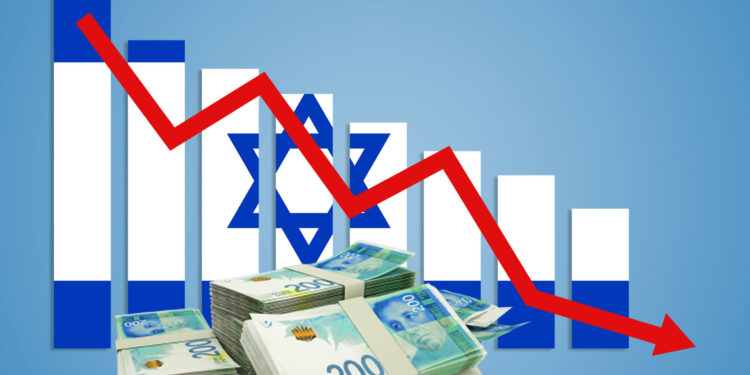10/9/2024–|Last updated: 10/9/202402:21 PM (Mecca time)
The Ministry of Finance in Israel has pushed forward proposals to raise taxes on the wealthy, as part of its plans to manage the fiscal deficit in 2025 resulting from the high cost of the war on Gaza and its expansion into Lebanon amid mutual bombardment on the Iranian and Yemeni fronts.
The Israeli economic newspaper Globes reported that the Finance Ministry proposes to raise the additional tax on passive income such as interest, in addition to raising the additional tax from its current rate of 3% to 5%, and expanding its scope to include those who have more than one home, which will affect the highest 10% of incomes. It will also be an obstacle to capital investment by Israelis.
Passive income is cash income flowing on a regular basis resulting from investment in a specific project without the need for material participation or the actual presence of the investor receiving the income.
Currently, annual passive income in excess of 721,560 shekels ($192,653) is subject to additional tax, including capital gains, interest, and dividends.
Wider policy
Israeli Finance says that the proposed measure is a correction of the current tax system, as many of the taxes imposed on passive income are less than the highest income tax brackets, which leads to a problematic situation, according to the newspaper.
The additional tax increase is part of a broad policy pursued by the Finance Ministry targeting the highest income brackets, which includes canceling the scheduled increase in the amount of tax-exempt pension income, and freezing the income tax brackets, despite the high inflation rate, which is equivalent to increasing the income tax in real terms, according to Globes.
Therefore – the newspaper says – Finance seeks to impose most austerity measures on those with high incomes, but at the same time it may lead to reducing the incentives to work, save and invest that will be required for the economy to recover when the war ends.
Profits from selling real estate
At the same time, the Finance Ministry seeks to expand the application of the additional tax to include sales of all real estate, instead of the current situation in which it is not applied to “luxury housing” according to the Ministry’s definition (i.e., those whose value exceeds 5.38 million shekels, or about 1.5 million dollars).
According to Finance forecasts, raising the additional tax rate from 3% to 5% will benefit the state by one billion shekels ($267 million) in 2025, and 1.5 billion shekels ($400.5 million) annually later.
Israeli Finance expects that expanding the scope of applying the additional tax on real estate investments will add 420 million shekels ($112.13 million) to revenues in 2025, and another 510 million shekels ($136.16 million) when the measure fully matures in 2029, according to what Globes reported.



